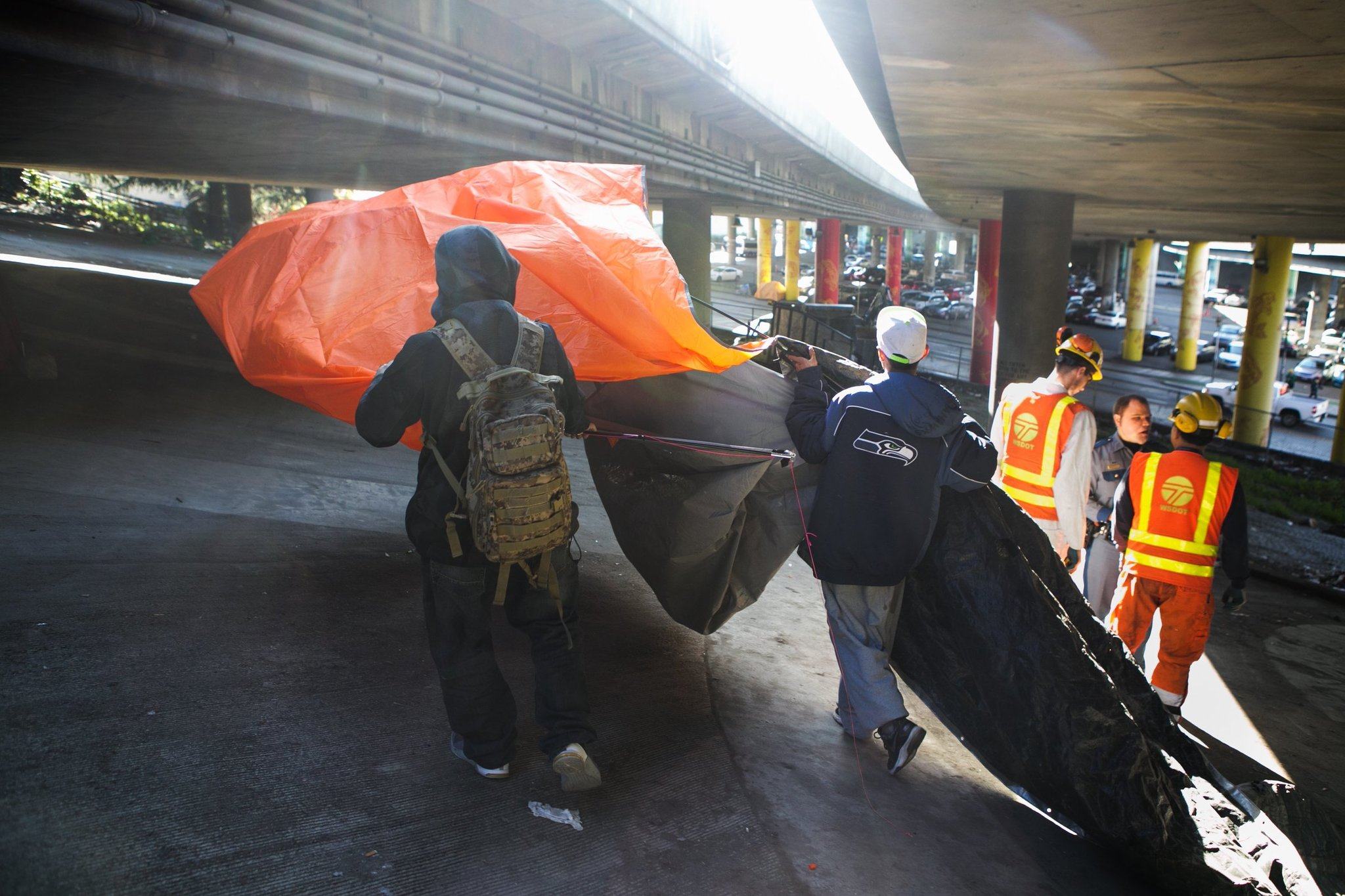The Associated Press
TACOMA — A federal judge in Tacoma has found a southwest Washington county liable for clearing out homeless encampments and seizing the residents’ belongings.
In a ruling Friday, Judge Robert Bryan said Clark County’s work crews violated the constitutional rights of at least a half-dozen homeless residents when they threw out their tents, stoves, medication, documents and photographs during sweeps from 2012 to 2014.
A trial is set for Oct. 3 to determine how much the county must pay in damages, but settlement talks are also planned.
“The only evidence in the record is that the County’s employees took all unattended property and then immediately destroyed the property, regardless of whether the property was abandoned,” the judge wrote.
He declined to immediately rule on the merits of claims by two other campers, saying it wasn’t clear who took their property.
The issue of encampment sweeps has become increasingly controversial as officials have struggled with rising rates of homelessness around the country.
A report by The Seattle Times last month found that despite efforts by some Seattle and state workers to provide advance notification of sweeps and connect homeless residents to social services, the cleanups were frequently ill-coordinated and residents often lost critical belongings. Mayor Ed Murray promised to do better.
The American Civil Liberties Union or other homeless advocates have filed recent lawsuits over sweeps in Los Angeles, Honolulu, Denver and other cities.
“It’s important to remember that people who are homeless have constitutional rights, including the right to due process when government seeks to seize their possessions,” Doug Honig, a spokesman for the American Civil Liberties Union of Washington, said in an email Friday.
“While the possessions may not have great monetary value, they can be vital to the lives of people who do not have shelter.”
The ACLU chapter was not involved in the Clark County lawsuit, but it and other civil rights groups have urged Seattle to change its approach to homeless encampments, noting that in a recent case challenging an anti-camping ordinance in Boise, Idaho, the U.S. Justice Department warned in a court filing, “If a person literally has nowhere else to go, then enforcement of the anti-camping ordinance against that person criminalizes her for being homeless.”
In March 2012, the Clark County Department of Corrections adopted a policy that work crews should clean up camps immediately if they’d been abandoned. If they hadn’t been abandoned, it said, the workers were to give one-hour notice that the residents had to vacate the area and take their belongings with them.
In practice, the crews apparently often didn’t care whether the property had been abandoned. One crew supervisor testified in a deposition that even if his workers complained that a campsite appeared to be recently occupied, he ordered them to clean up anyway.
A lawyer for the county did not immediately return an email seeking comment Friday.
Peter Fels, one of the attorneys for the plaintiffs, said he learned of their plight by volunteering at a legal clinic at the shelter.
After the lawsuit was filed last year, the county conducted training to explain to work crew supervisors that they should not remove property from homeless camps and to help them identify property that has not been abandoned.
But Fels and his co-counsel, Moloy Good, said Friday more changes are needed.
In addition to damages, they are seeking to have the county make clear that work crews shouldn’t pick up any unattended property.

